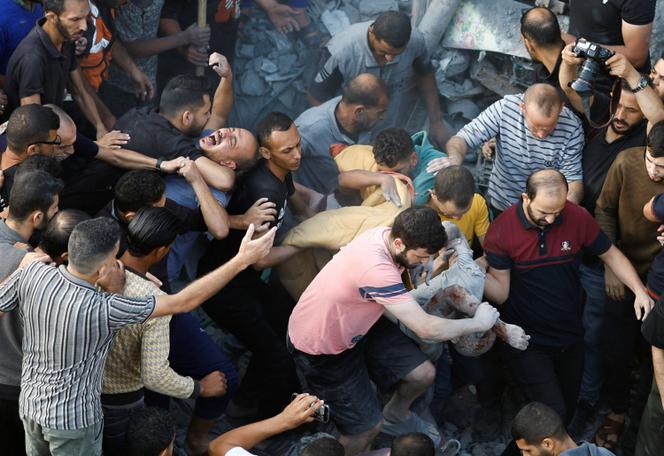


Over the weekend, Israeli army strikes on the Gaza Strip increased again, as the decisive phase of military operations began, taking Israeli forces into the heart of Gaza City's dense urban area. Demonstrations that took place around the world over the past few days had no impact on this, nor did the rare joint statement from the 18 main UN agencies calling for "an immediate humanitarian ceasefire" in the face of the "shock and horror" of "the spiraling numbers of lives lost and torn apart" in the enclave.
The strikes are not limited to this area, in the north of Gaza. At midnight on Saturday, a bombardment hit the Maghazi camp, located south of the Wadi Gaza, the river designated by the Israeli army as the border between the combat zone and the areas where the inhabitants are forced to flee. This strike caused the death of 50 people, according to the Gaza Ministry of Health.
The Israeli army claims to have hit 2,500 targets since the start of ground operations, launched just over a week ago. For several days, its forces advanced from the north of the enclave and from the east, succeeding over the weekend in encircling Gaza City. This is where, according to the Israelis, the majority of Hamas structures are located, most of them underground. The city was bombarded with an intensity unprecedented in this conflict. "Significant strikes are now underway" in the Gaza Strip and "will continue tonight and in the coming days," said army spokesman Daniel Hagari on Sunday evening.
Hamas claimed that Israel was carrying out "intense bombardments" around several hospitals, including the Al-Shifa hospital, the largest in the territory. On its Telegram channel, the Islamist organization called on UN Secretary General Antonio Guterres to form "an international commission of inquiry" to visit the hospitals in Gaza to sift through the "false narratives of the [Israeli] occupiers," who claim that Hamas is using them as shields for its facilities.
The Gaza Strip is plunged into darkness. Internet access and telephone lines have been cut. "Unfortunately, we've lost contact with our Gaza teams during the third telecom blackout since the escalation began," said the Palestinian Red Crescent. Shortly after the blackout, the Israeli army concentrated its large-scale bombardment on the city, targeting the Al-Shati refugee camp on the seafront, not far from Al-Shifa hospital, which has become a refuge for thousands of people, less than 3 kilometers from the nearest Israeli positions.
You have 65% of this article left to read. The rest is for subscribers only.
